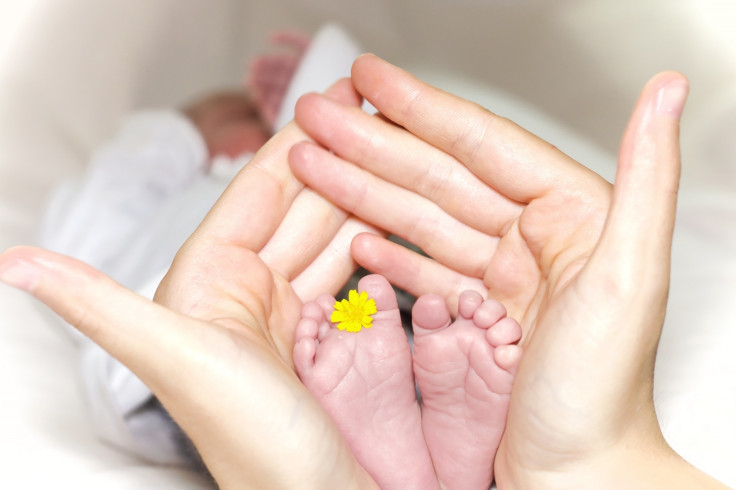Historic successful womb transplant in the UK sparks hope for infertile women
The UK achieved its first successful womb transplant, paving the way for infertile women to have children. A sister's womb donation fuels groundbreaking possibilities in reproductive medicine.

The UK has witnessed a groundbreaking medical achievement as surgeons successfully executed the inaugural womb transplant in the country, opening doors for numerous infertile women to potentially become mothers each year. This remarkable feat involved a living donor — the recipient's sister — who generously provided her womb.
The recipient, a 34-year-old woman, expressed her immense joy and euphoria following the nine-hour surgery. The medical team responsible for this pioneering procedure conveyed her excitement and reported her intention to pursue in vitro fertilisation (IVF) to conceive two children.
The woman was born with a rare condition that stunted the development of her original womb. Her 40-year-old sister, already a mother of two, selflessly donated her womb to facilitate the life-changing transplant.
Notably, this achievement aligns with more than 90 similar international cases, spanning countries such as Sweden, the US, Saudi Arabia, Turkey, China, the Czech Republic, Brazil, Germany, Serbia and India. The majority of these endeavours involved living donors, resulting in approximately 50 babies being born as a direct outcome.
Isabel Quiroga, co-lead surgeon and consultant surgeon at the Oxford Transplant Centre, voiced her delight and pride in the successful outcome of this surgery. The recipient's contentment was evident, and her womb was functioning optimally, closely monitored by medical professionals.
A second womb transplant is slated to take place in the UK this autumn, with other patients also in the preparatory stages. Surgeons have been granted approval for ten operations using brain-dead donors and an additional five involving living donors.
The recipient, who resides in England and has chosen to remain anonymous, underwent the transplant surgery in February at Oxford's Churchill Hospital. The operation, lasting nine hours and 20 minutes, allowed her to be discharged ten days later.
Professor Richard Smith, the co-lead surgeon, clinical lead at the Womb Transplant UK charity, and consultant gynaecological surgeon at Imperial College London, hailed the surgery as an overwhelming success. He described the experience as both stressful and positive, highlighting the emotional impact it had on the donor and recipient.
The recipient suffered from Mayer-Rokitansky-Küster-Hauser syndrome (MRKH), a rare condition affecting approximately one in 5,000 women. MRKH leads to underdeveloped or absent wombs and vaginas.
The first indication typically arises during the teenage years when menstruation does not commence. However, the ovaries remain functional, producing eggs and female hormones, thereby enabling the possibility of conception through fertility treatments.
Before the transplant, the recipient underwent fertility stimulation and intracytoplasmic sperm injection (ICSI) to create embryos. The five embryos that reached the blastocyst stage—a stage conducive to IVF success — were preserved for future treatment at the Lister fertility clinic in London.
Smith affirmed that the transplanted womb was functioning optimally, and IVF plans were proceeding as intended. The recipient would need to take immunosuppressant drugs throughout a potential pregnancy to prevent organ rejection. The transplant is predicted to last a maximum of five years before removal.
The intricate procedure involved over 30 medical personnel and began with the removal of the donor's womb, followed by the recipient's surgery one hour later. The sisters underwent comprehensive counselling and assessments from various medical specialists, including gynaecologists, transplant surgeons, obstetricians, psychologists, anaesthetists and pharmacists.
The Human Tissue Authority (HTA) also ensured that both sisters were fully informed about the risks and were willingly participating in the procedure. After undergoing thorough scrutiny, the case received HTA approval. The £25,000 cost of the transplant was covered by contributions to Womb Transplant UK.
Smith estimated that around 20 to 30 women in the UK could potentially benefit from living donor womb transplants annually in the foreseeable future. This procedure holds promise for women born without a functioning womb, as well as those who lose their womb due to cancer or other medical conditions. Surgeons also anticipate the involvement of non-relative altruistic living donors.
Quiroga emphasised the interest of women in contributing to this cause, either by offering their wombs to help others experience motherhood or by aiding women who seek to become mothers once again. This altruistic spirit is anticipated to play a significant role in the future of womb transplants.
© Copyright IBTimes 2025. All rights reserved.






















